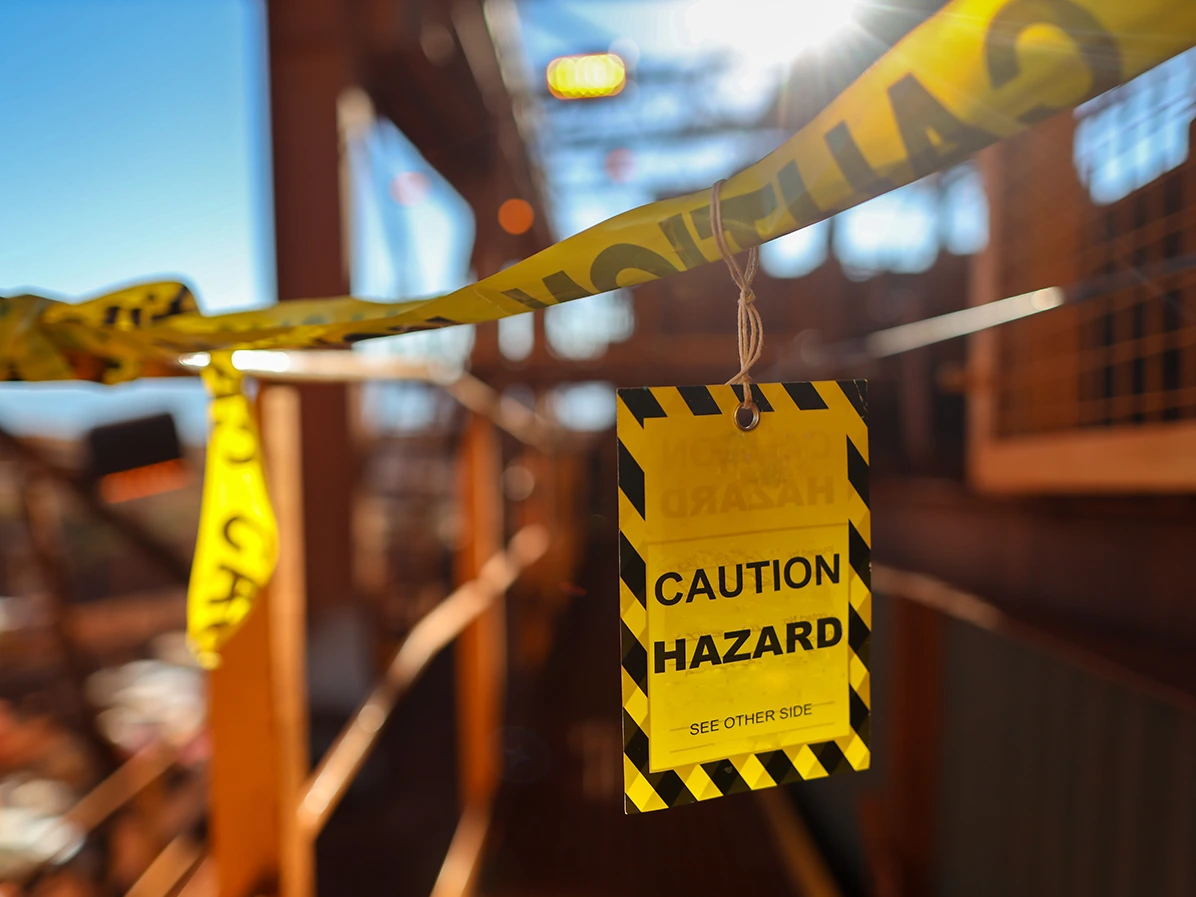Contents
A Step-by-Step Guide to Effective Incident Investigation
3 September 2024 - Evotix
All too often, workplace incidents are swiftly followed by accusations. The impulse to blame someone or something is a part of human nature; however, engaging in this blame cycle is not productive, nor does it foster a healthy work environment.
In most cases, incidents are preceded by a series of a failures rather than just one. Instead of looking to distribute blame to people, we should instead work to identify where the processes failed and how we can ensure they do not happen again. In other words, instill a mindset of trying to uncover how and why incidents occur, without initially placing blame.
This is where effective, proactive incident investigation comes into play.
While every incident is regrettable, taking the right steps systematically allows you to focus on the true causes and draw the lessons needed to prevent a repeat in the future.
The Importance of Proper Incident Investigation
The fact that every incident, no matter how serious, is effectively a series of failures means that a thorough investigation is crucial to understanding what happened and led to the occurrence. This is a matter of due diligence, but, when done properly, it also offers businesses the opportunity to reflect – to really discover the issues and occurrences that led to the incident and use any lessons learned to improve.
Here are a few of the reasons why incident investigation matters so much:
-
Investigates causes – A thorough investigation allows you to find the causes of an incident, allowing you to take the necessary steps to prevent it from happening again.
-
Identifies gaps - Investigation allows you to identify any gaps in procedure/processes to ensure the incident is fully understood.
-
Establishes and restores confidence - By conducting a thorough investigation quickly, you demonstrate that you take the health and safety of your employees seriously, restoring staff confidence following the incident.
-
Allows for continuous improvement - Any learning gathered through the course of the investigation is vital to help the business to improve. Not only does it uncover the failures that led to the incident, but it might even uncover other potential risks.
-
Provides evidence - Thoroughly investigating any incident ensures you have clear documentation and evidence needed for compliance and insurance.
The Steps in Incident Investigation
Step 1
Secure the scene – the first step is to ensure the area has been cleared. It is vital to block off the area of the incident to keep other workers or the public safe as well as to preserve accurate evidence of what happened.
Step 2
Prepare materials and personnel – Before you properly launch the investigation, it is important to plan accordingly. Identify who will need to be involved (for example, the EHS professional, the employee involved in the incident, other workers in similar functions, frontline manager, etc.), what equipment you’ll need, what measures need to be taken in which order and how details will be accurately recorded and reported.
Step 3
Gather information – Now it’s time to start collecting information to fully understand what happened. This could come from staff interviews, equipment from the scene, logbooks, inspection reports or training manuals. This data needs to be accurately recorded and combined onto an incident investigation form.
Step 4
Analyze data – With all the information gathered in one place, it must now be properly analyzed. It is important to make sure that any investigation goes beyond a superficial review to make sure you get to the heart of the issue. A comprehensive root cause analysis study is helpful at this stage to make sure every aspect is examined in sufficient detail, including all the contributing factors, and nothing gets missed.
Step 5
Implement corrective actions – Once you have a clear understanding of what took place, you can start putting the right measures in place to eliminate and/or mitigate the risk. This means addressing both the immediate and the underlying issues. This is where it's pivotal to put the proper corrective and preventative actions in place to best ensure the incident does not happen again.
Step 6
Conduct reporting – Thorough documentation and precise reporting of all findings, analyses and corrective actions following an incident are often mandated at both organizational and federal levels. These reports are essential tools for conveying insights to management, employees and sometimes external entities.
Conducting thorough incident investigations is crucial for improving safety in the workplace. By identifying causes and creating and implementing corrective and preventative actions, organizations can ensure the workplace is healthy and safe and adhering with safety regulations. Following these essential stages not only decreases the chances of future incidents but also encourages the continuous improvement of safety practices.
To learn more about the importance of a thorough incident investigation, check out our Incident & Injury Management page.
RELATED BLOGS

How Incident Reporting Software Can Help Prevent Future Incidents
13 June 2024 - Evotix
Every incident in the workplace has far-reaching implications for the business. Impacting not only the individual worker affected, but the morale of the whole team and their confidence in the..

What Is Safety Incident Management and Why Does It Matter?
14 February 2023 - Evotix
Today, workplace accidents still occur all too frequently. In North America alone, 2022 saw 2.6 million reported workplace accidents and illnesses. There are many reasons for workplace incidents to..

5 Reasons Why Incident Investigations Are Crucial for Workplace Safety
15 August 2024 - Evotix
When an incident strikes, understanding the events and factors leading up to it is crucial. This investigation empowers health and safety professionals, and others involved, to extract valuable..
